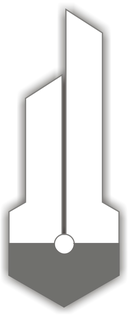This is when you excessively repeat keywords or key phrases in your content with the intention of manipulating search engine rankings. Add your target keyword to your URL so users and search engines know what kind of content they will find on the page. Most likely because it contains the information they’re looking for. Therefore it’s essential to write excellent content that corresponds with their needs. Which site ranks highest for a specific search term is primarily based on a website’s content. That’s why your content should be informative, easy to read, and focused on the right keywords that your audience uses.
How to Get Into Digital Marketing: Tips From An Expert
One of them is looking for linking patterns among your competition so that you can get links from the same websites. Internal links are links from one page on your site to another. They help Google understand what a page is about and boost its authority, which can lead to higher rankings.
On-page SEO (also known as “on-site SEO”) is the practice of optimizing webpage content for search engines and users. Common on-page SEO practices include optimizing title tags, content, internal links, URLs, and other ranking factors. It’s a foundational SEO strategy and an excellent place for beginners to practice SEO.
Offer Personalised Product Suggestions
You’ll also see a benefit to your users because it’s easy to remember. My advice is to work through each checklist item in this section and do as much as you possibly can. Get this part right, and you’ll be fighting a much easier battle in terms of rankings. Analyse what’s ranking in the SERPs and give you specific recommendations on exactly what you’re missing. We’ve considered many things to do if you want to create SEO content, but as you may have noticed, many of these things require tools for execution.
So if you link to other pages on your website using the right keywords, it may be a SEO Anomaly signal for Google to rank them higher for these keywords. It helps both Google and users to understand what the linked website is about. Although keyword in the URL most probably doesn’t influence your ranking in any way, it is a good step that can improve the overall UX and the CTR. It is best practice to use the focus keyword in the title tag of your page.
On-page SEO focuses on optimizing factors within the website itself, such as content quality, keywords, and HTML tags. Off-page SEO, on the other hand, involves external factors like backlinks, social signals, and overall online presence. While on-page SEO is within your control, off-page SEO involves factors influenced by external sources. Review the final layout of your webpage and ensure your content is accessible across mobile and web browsers.
- These links help search engines understand your site structure and which pages and topics are most important.
- The first step is to conduct keyword research to determine applicable keywords for your business.
- Say you wanted to write about “how to become a freelance writer,” for example.
- In 2014, Google announced that HTTPS has become a (lightweight) ranking signal.
Backlinks, also called inbound links, are links from other websites directing to your site and are among the most powerful ranking factors in SEO. Page speed is the amount of time it takes to fully display the content of a landing page. It’s an important ranking factor, as websites with faster page speed have better user engagement and higher conversion metrics.
Unfortunately, lots of stores rely on product tags for purposes like flagging products as on-sale or as part of a custom one-off Shopify collection. If that’s true for your store, you’ll have to find another solution. On Shopify, product tags allow you to add filtering options to collection pages, making it easier for shoppers to find exactly the right product.
Page Titles
Topical authority is a measure of how authoritative your website is about a specific topic. They can highlight ideas right in the search results for content you could create to help solve those pain points. Reddit, Quora, forums and other online communities are excellent places to find keywords.
Remember to write unique and descriptive texts for every single page and be sure to incorporate your keywords as much as possible – but again, in a way that sounds natural. Examples of on-page SEO include headings and subheadings, internal linking, and images and alt-text. These are all elements on the page that, when optimized, can help your website content rank higher on search engines—and drive more traffic. On-page SEO focuses on optimizing individual pages to improve search visibility and user experience. It involves aligning your content, HTML elements, and site structure with SEO best practices. This ensures search engines understand your pages while making them more engaging for visitors.

